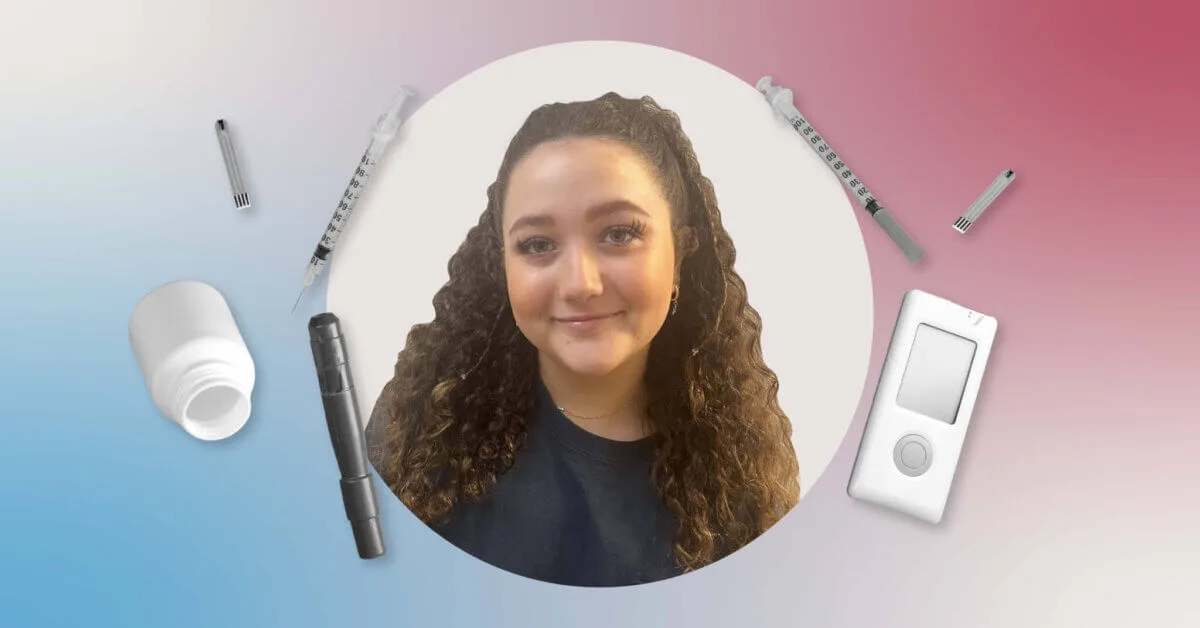
Graphic by Desiree Tapia, photograph courtesy of Hazel Bentley
Hazel Bentley, a 14-year-old Grand Rapids resident, shares what it’s like to live with diabetes and explains why lowering the cost of insulin is a big deal.
In March, the three major insulin makers that make up roughly 90% of the market—Eli Lilly, Sanofi, and Novo Nordisk—announced that after years of raising prices, they would finally lower them.
More specifically, the companies said they would implement a $35 monthly cap for those with private insurance and/or lower the list prices of their products by between 70-78%, effective Jan. 1, 2024. Individuals without insurance will also have access to lower prices.
These announcements came after years of pressure from diabetics, many of whom were forced to spend several thousand dollars—and sometimes tens of thousands of dollars—a year on the medication just to stay alive.
They also came after President Joe Biden’s Inflation Reduction Act capped out-of-pocket insulin costs for seniors on Medicare at $35 per month. Biden’s American Rescue Plan also reformed the rules guiding the Medicaid health insurance program so that the companies would have faced a financial penalty had they not lowered their prices.
Diabetics across the country have welcomed the news. In Michigan, the focus on reducing insulin costs continues, as Democratic Congressman Dan Kildee recently proposed federal legislation to ensure that no patient, regardless of their insurance coverage, pays more than $35 per month for the medication. Gov. Gretchen Whitmer has also proposed spending in the 2024 state budget to subsidize the cost of manufacturing low-cost insulin in the state.
These efforts are a big deal, and could prove to be life-saving in the future for Americans like Hazel Bentley, a 14-year-old diabetic who lives in Grand Rapids. We recently interviewed Bentley to hear her story and get her thoughts on some of the recent announcements.
This interview has been edited and condensed for brevity and clarity.
The ‘Gander: When were you diagnosed with diabetes? What was that experience like for you?
Hazel: I was diagnosed in April of 2020. It was overwhelming. I knew it was going to happen, I had been in a study for a few years, it was testing me every few months to see if I was still able to produce enough insulin. And then as soon as COVID hit, I got the call and started going on insulin.
I’m assuming your mother is mostly paying for the insulin right now. Do you have a sense of how much your insulin costs every month out-of-pocket?
[Editor’s note: Hazel’s mom, Sarah Andro, was present for this interview and answered this question.]
Sarah: It’s $0. She’s on a program called Children’s Special Health Care Services, which is a backup insurance, so it covers anything diabetes related. Anything like any deductibles or diabetes related hospitalizations are covered by that, so they’re all $0. She’s able to stay on that until she’s 21. Her older sister is also diabetic and also on the same program.
Thank you. Hazel, How does having diabetes affect your life day-to-day?
I have an insulin pump, so it makes it a lot easier. If I was to still be getting shots, it would be too much, but my pump helps a lot.
Some days I’ll miss school because of my diabetes. If my body becomes super insulin resistant all of a sudden and it’s just not taking it in, then I’ll have high blood sugar the whole night and it’s too much for me to go to school and it’s made me fall behind in schoolwork.
It affects me everyday mentally and physically.
Have you ever had issues getting enough insulin?
Recently, my pharmacist gave me three vials of insulin instead of four. I ran out early and they’re legally not able to give me any extra insulin. My insurance doesn’t allow them to give me another, and I think that’s completely ridiculous. They couldn’t give me pens or a vial at all. Nothing. And it’s horrible. Thank god that I had my sister who I can borrow insulin from, but if I didn’t have my sister, what was I supposed to do? Go to the hospital at nine o’clock at night on a school night? It’s crazy and it’s terrifying.
Are you worried about something like that happening again in the future?
Yes. It actually makes me terrified because my sister recently moved to Florida and so now I don’t have her here if I do need insulin. If I was to run out, I would have to go to the hospital because there’s no other option. Because if they can’t give me insulin, what am I supposed to do? Just have blood sugar over 400 the whole night until the morning when my mom can call my doctors? That is not going to work.
In March, the three major insulin makers announced they’re going to be cutting the list price of some insulin products and/or implementing monthly caps on the cost of the medication. What was your reaction to that news?
I actually saw it on my Instagram. I was really relieved. It’s amazing because the cost of insulin is crazy and I was just really happy for everyone who has diabetes. I’m very happy they did this, because I just feel so bad for everyone who doesn’t have what I have. I’m so grateful that I am able to have my insulin and not have to ration it. I know people who can’t afford it. I think it will help them.
Is there anything else you want lawmakers to do? What would you want them to know about your experiences?
They should know it’s incredibly hard and I am lucky enough to have the resources I do—having a sister who has diabetes and being in the program I am in, but if you don’t have that, you are struggling like crazy.
I don’t think they realize how hard it is because the insulin companies look at this and say, ‘Oh, here’s a chance to make money off of people who are sick and dying.’ And it’s truly disgusting how greedy people are, because insulin is not that expensive to make and it’s just disgusting how expensive it is.
Anything else you’d like to add?
I just think they need to lower the prices for insulin more and they need to make it more available because if this is a disease that can kill me, the high cost needs to stop. Insulin companies need to stop being so greedy and wanting to take money and take advantage of people who have to live with this every day, who have to spend their whole life worrying about it since there’s no cure. It’s terrifying and it’s horrible.
Politics

Michigan lawmakers look to break (another) state funding record for public schools
Democratic lawmakers are hashing out plans to bring state funding for Michigan’s public schools to another new, all-time high—and ensure teachers...

Mundy Twp. project gets state funding in effort to boost local manufacturing
More than $9 million awarded to a planned development project in Genesee County could provide a big boost to the local economy and help create...

It’s official: Your boss has to give you time off to recover from childbirth or get an abortion
Originally published by The 19th In what could be a groundbreaking shift in American workplaces, most employees across the country will now have...
Local News

More Michigan teens could soon take driver’s ed in their own schools
Privatization of driver’s education means that only 38 Michigan high schools offer affordable in-school driving classes for students. New grants...

That one time in Michigan: When we became the Wolverine State
How did Michigan become tied to an animal that's practically nonexistent there? Among the many nicknames that the state of Michigan has, arguably...





